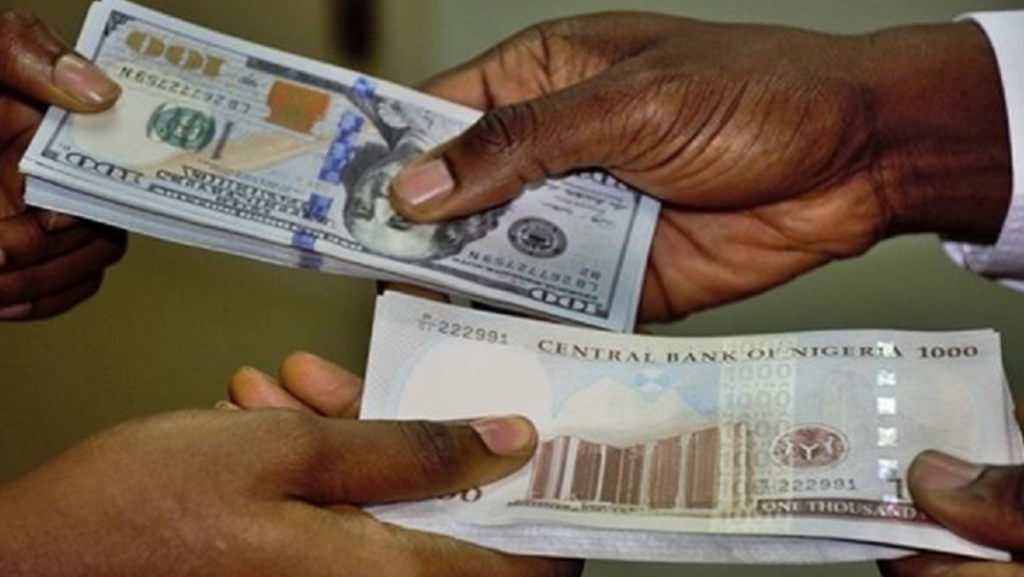In recent weeks, the Naira has experienced a remarkable resurgence, emerging as the world’s top-performing currency against the US dollar. Since mid-March, the Naira has surged by approximately 40 per cent against the dollar. This surge is attributed to a series of viable economic policies implemented by the Nigerian government, which has improved demand for the nation’s assets and instilled confidence in the economy.
Goldman Sachs economists, who previously forecast the Naira’s strengthening to 1,200 per dollar by the end of 2024, now anticipate even further gains, with the Naira potentially surpassing this level. Andrew Matheny of Goldman Sachs remarked that the current momentum may propel the Naira towards the coveted sub-1,000 level, a testament to the effectiveness of the measures implemented by the Office of the National Security Adviser (ONSA) and the Central Bank of Nigeria (CBN).
Recall that in the wake of the Naira slum, the CBN initiated a comprehensive strategy to enhance liquidity in the forex market, including unifying FX market segments, clearing outstanding FX obligations, and introducing new operational mechanisms for Bureau De Change operators. Others are enforcing the Net Open Position limit for commercial banks, and adjusting the remunerable Standing Deposit Facility Cap. Yet, the naira keeps dropping in the forex market.
The apex bank also joined forces with the ONSA, along with the Nigeria Police Force (NPF), the Economic and Financial Crimes Commission (EFCC), the Nigeria Customs Service, and the Nigeria Financial Intelligence Unit (NFIU), to address challenges impacting the nation’s economic stability.
Amidst this backdrop of currency appreciation, however, lies a stark reality: the persistently high levels of inflation and soaring food prices continue to burden ordinary Nigerians. In March alone, inflation surged to a staggering annual rate of 33.2 per cent, marking a nearly 30-year high. Before now, marketers and suppliers in various sectors blamed the value of the Naira for increased prices of commodities in the market.
While the Naira’s resurgence is undoubtedly a cause for celebration, it is important to acknowledge the dual challenges of persistent inflation and unabated food insecurity. The disparity between the strengthening currency and the harsh economic realities faced by ordinary Nigerians calls for immediate action to address these pressing issues.
As we commend the achievements in stabilising the Naira, we cannot afford to overlook the plight of millions of Nigerians who continue to bear the brunt of inflationary pressures and food insecurity. The government must adopt a strategy that focuses on currency stabilisation, as well as prioritises measures to alleviate economic hardship and curb inflation.
The Federal Competition and Consumer Protection Commission (FCCPC), mandated with protecting consumers from unfair trade practices, must rise to the occasion and fulfill its responsibilities effectively. Arbitrary price increases driven by price gouging and supply manipulation not only burden consumers but also undermine the principles of fair competition and consumer rights. As highlighted in Section 17(s) of the Federal Competition and Consumer Protection Act (FCCPA) 2018, obnoxious trade practices and exploitation of consumers are strictly prohibited. The FCCPC must leverage this regulatory framework to crack down on perpetrators engaging in price gouging and manipulative practices.
While the strengthening of the Naira is a positive and commendable development, it is necessary that authorities tackle the realities of inflation and food insecurity head-on. The government, alongside relevant stakeholders, must prioritise the implementation of policies and interventions aimed at addressing these challenges and improving the overall economic well-being of Nigerians.
